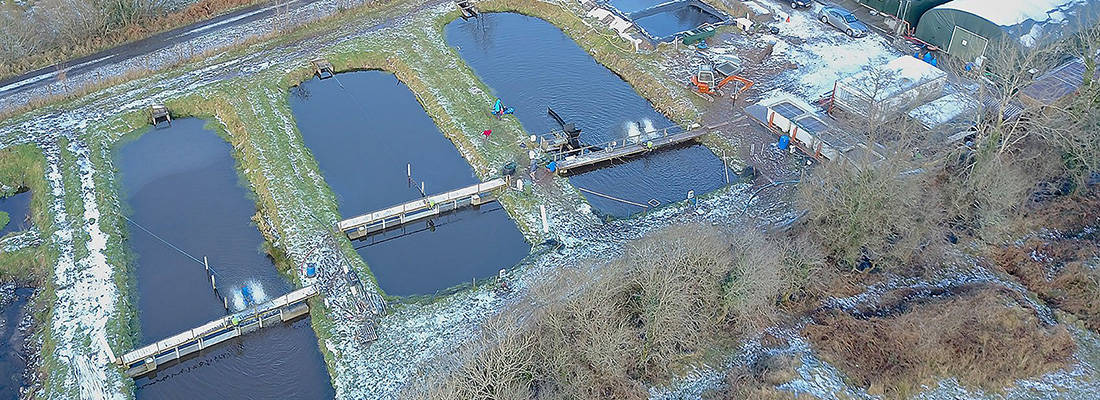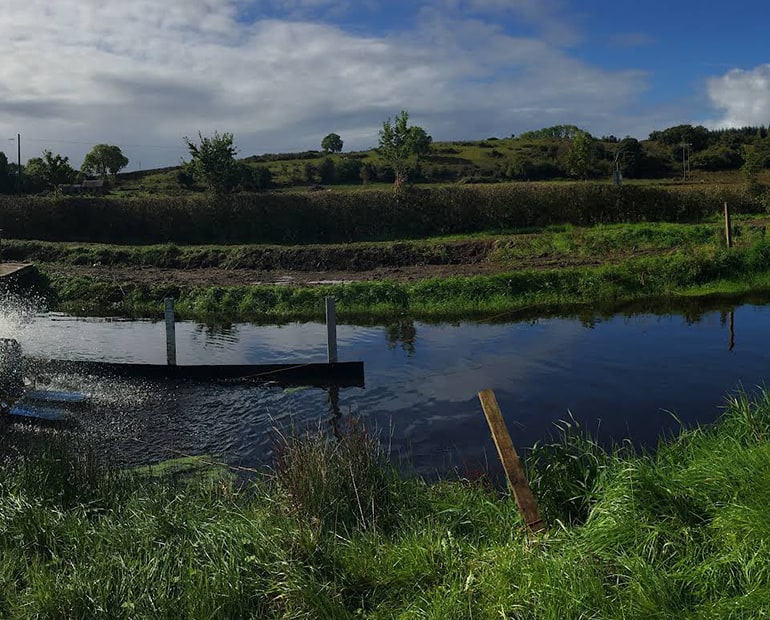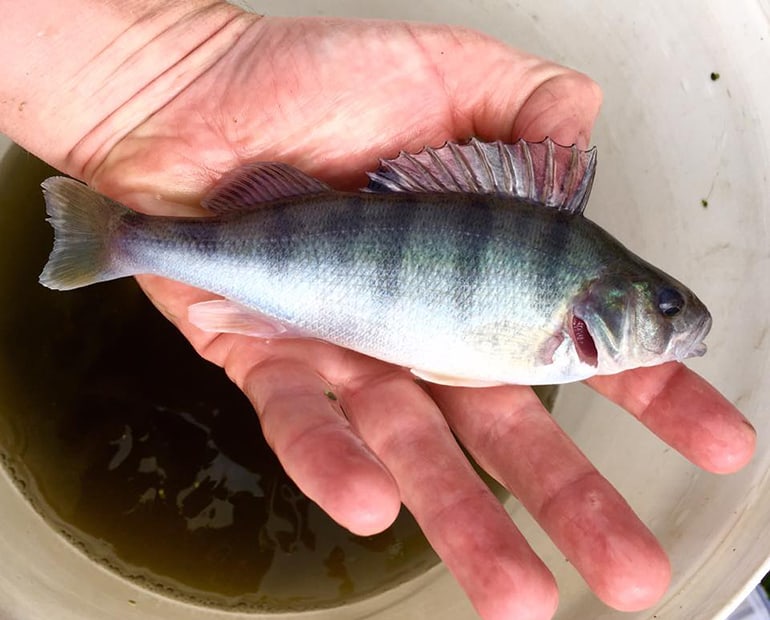
Innovative grading system

Onsite outdoor split pond technology
Keywater Fisheries Ltd.’s principal business activity is aquaculture. They produce juvenile freshwater Perch in dedicated warm water re-circulation units and can grow these Perch to market size using their onsite outdoor split pond technology. Having worked with the PEM Technology Gateway at IT Sligo on a previous Innovation Voucher, which focused on potential design solutions for a grading instrument, Keywater Fisheries decided to approach PEM about working on a 2nd Innovation Voucher with them.
Innovation Voucher Programme
The problem to be addressed in this Innovation Voucher project was the grading of juvenile perch. Grading of the Perch optimises production by reducing cannibalism, decreases size variability among growing fish, and improves feed conversion efficiency by using the appropriate size food grades for the size of fish. The grading process with juvenile perch is currently done on a weekly basis and is very labour intensive and physically challenging. This current process requires filling a bucket type device with fish.
The grid in the base of the bucket lets fish of a certain size pass through while holding back the other larger fish. Grading begins with a 1.5mm grid with increasing increments of 2mm / 2.5mm / 4mm / 4.5mm / 5mm. Keywater Fisheries Ltd would like the knowledge provider to design and manufacture a fully functional prototype which will automate the grading process.

1
Irish company
1
working prototype
2
Innovation Vouchers
“Having taken delivery of the prototype grader we are delighted with the progress that the students and PEM Technology Gateway have made with this automatic fish grader. We are very happy with the build quality and design but moreover, we are excited at the prospect that this automatic grader could have a profound and positive effect on our grading process, saving us much time and strife while reducing our workload. The ultimate aim of this project for Keywater fisheries is to streamline our process, resulting in increased fish welfare and profitability. We firmly believe that we are well on our way to achieving this thanks to this grading machine. We would like to take this opportunity to thank Mark McLoughlin and all the enthusiastic students involved in the project, and hopefully, we can work together again in the future.”
Paul Kearney
Keywater Fisheries Ltd & PEM Technology Gateway partnership
After meeting with Keywater Fisheries and ensuring we understood the problem they had, the PEM research staff began development of an automated fish grading Machine. Student Researchers undertook desktop research, developed concept drawings and delivered working prototype of a system based on the client’s design brief. The prototype system is currently undergoing functionality testing at the Keywater hatchery site in Cloonloo Co. Sligo